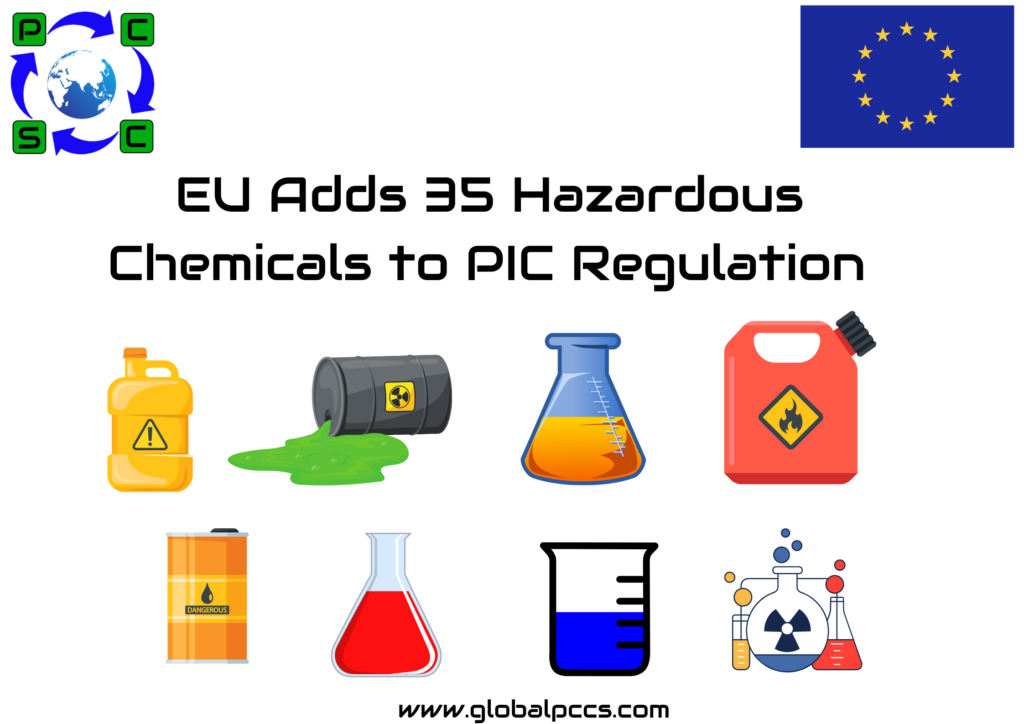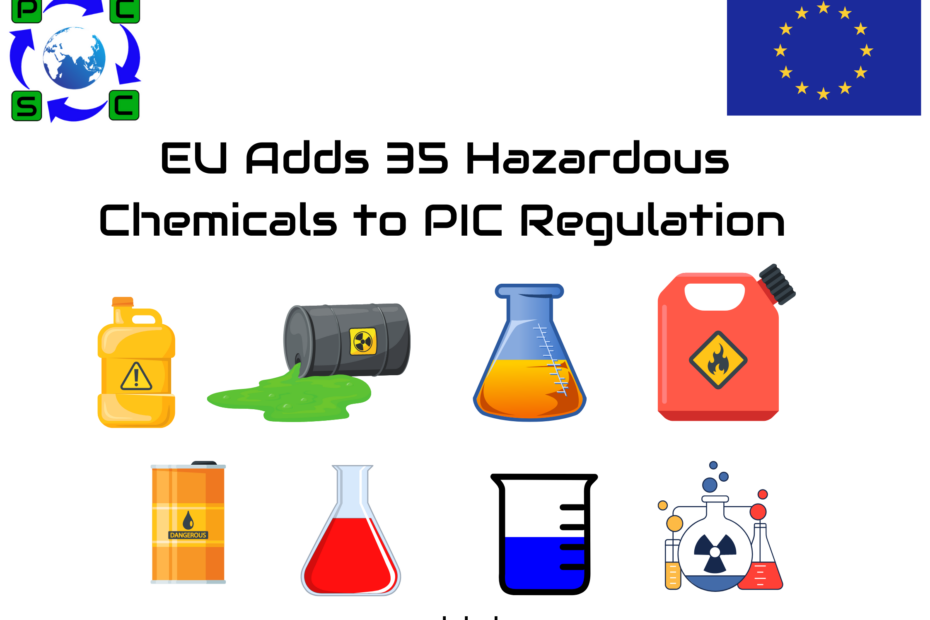
The European Union added 35 chemicals in the Annex I of Prior Informed Consent Regulation, including 27 pesticides and 8 industrial chemicals. It shall apply from November 1, 2023.
Introduction to PIC Regulation
An international agreement called the PIC Regulation, sometimes known as the Prior Informed Consent Regulation, intends to regulate the transboundary transfer of dangerous
chemicals and pesticides. The United Nations Environment Programme (UNEP) endorsed it in 1998, and it went into effect in 2001.
According to the PIC Regulation, exporters of dangerous chemicals and pesticides must alert the importing nation before doing so. The decision to permit or deny the import of the
chemicals will thereafter rest with the importing nation.
Because it contributes to the protection of the environment and human health, the PIC Regulation is significant in the EU. It makes sure that dangerous chemicals are not traded
without the importing nation’s knowledge or approval. This is crucial because certain nations might not be able to evaluate the dangers of dangerous chemicals.
Additionally, the PIC Regulation works to advance safe handling of dangerous substances. The development and implementation of national laws and regulations on the management of hazardous chemicals is encouraged.
The PIC Regulation is a useful weapon for defending the environment and public health. The EU’s commitment to sustainable development includes it as a key component.
Important aspects of the PIC Regulation
��Pesticides and dangerous substances are covered both for export and import.
��Before exporting the chemicals, exporters are required to inform the receiving nation.
��After that, the importing nation can choose whether to permit the import of the chemicals or not.
��The PIC Regulation allows the importing country the discretion to determine whether or not to permit the import or export of hazardous chemicals, but it does not outright prohibit either.
��Each nation’s national laws are used to implement the PIC Regulation.
Current Information
35 hazardous compounds have been added to the Prior Informed Consent (PIC) Regulation by the European Union (EU). An international agreement called the PIC Regulation tries to regulate the transboundary flow of dangerous chemicals and pesticides.
The 35 chemicals that have been added to the PIC Regulation are:
��14 pesticides
��11 industrial chemicals
��10 metals
Reason for addition
The substances were included in the PIC Regulation because it was determined that they posed a risk to the environment or public health. Since these compounds are now covered
by the PIC Regulation, exporters of them are now required to notify the importing nation before doing so.
The decision to permit or deny the import of the chemicals will thereafter rest with the importing nation.
It is a step in the right direction to safeguard the environment and human health that these substances have been added to the PIC Regulation. It will aid in preventing the transfer of these dangerous substances without the importing nation’s knowledge or agreement.
Implications
The PIC Regulation’s inclusion of these substances marks a significant advancement in the fight against dangerous chemicals. It serves as a reminder that the EU is dedicated to
defending the environment and public health, even when it comes to commerce.
Summary
The PIC Regulation, which mandates exporters to warn importing nations before exporting them, was expanded by the EU to include 35 hazardous chemicals. This is done to stop the transfer of these harmful compounds without the consent or knowledge of the country that is importing them.
In other words, by prohibiting the trade of dangerous chemicals without the approval of importing countries, the EU is working to preserve the environment and human health.
For more information on the impact please book a free consultation by filling the form or writing to us at manjunath.c@globalpccs.com








 Authorised IMDS & CDX Training & Consulting partner for
Authorised IMDS & CDX Training & Consulting partner for






